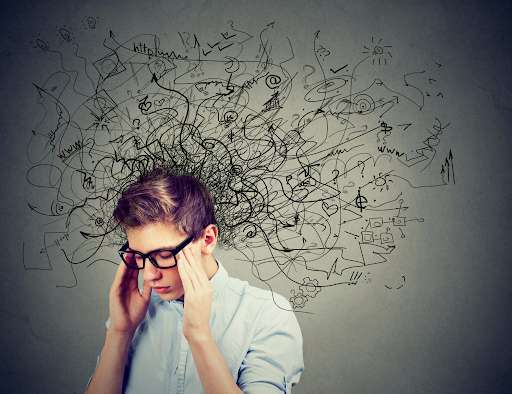Here we will go over the effects that alcohol has on a person’s physical and mental well-being.

Alcohol abuse is defined by an individual’s uncontrolled dependence on consumption. Unfortunately, this disease is present in nearly %7 of the population and is responsible for roughly 3.3 million deaths worldwide each year.
Keep reading to learn how alcohol abuse impacts the mind and body.
Physical effects of alcohol abuse
Prolonged alcohol abuse affects the physical body and its major organs in many ways. Below are some of the most common complications of alcohol addiction.
Cirrhosis of the liver
When the liver is tasked with processing more alcohol than it can handle, it becomes damaged by the alcohol and its byproducts. Every time the liver becomes damaged, it tries to repair itself by creating scar tissue, fat, and inflammation that may eventually lead to liver failure.
Some symptoms include:
- Muscle cramps
- Vomiting
- Easy bruising and bleeding
- Jaundice
- Swelling of the legs
Stomach ulcers
Alcohol is a poison that eats away at a person’s stomach lining when consumed frequently due to constant contact, irritation, and lack of time to heal.
Some symptoms include:
- Vomiting with or without blood
- Stomach pain
- Blood in stool
- Heartburn
- bloating
Heart problems/disease
Repeated intake of alcohol dilates blood vessels (high blood pressure) and creates a fatty build-up in the artery walls (high cholesterol). Over time, these two conditions may result in heart disease.
Some symptoms include:
- Chest pain
- Trouble breathing
- Weakness
- Heart palpitations
- Coughing up mucus
- Swelling of legs, ankles, and feet
Cancer
During the metabolism process, the liver generates acetaldehyde, a human carcinogen that can damage DNA and proteins. Damage to human DNA is the primary cause of cancer.
Some symptoms include:
- Wheezing
- Pain
- Weight loss
- Fatigue and weakness
- Fever
- Skin changes
- Unusual bleeding
- Slow healing
Memory loss/dementia
Alcohol addiction can result in memory loss or dementia because the acetaldehyde generated after consumption is toxic to brain cells. Additionally, alcohol interferes with the brain’s ability to create and store memories.
Some symptoms include:
- Difficulty communicating
- Difficulty organizing, reasoning, and solving puzzles
- Confusion or disorientation
- Decreased motor function and coordination
- Inability to identify people, objects, places, or the time
- Hallucinations
- Inability to care for oneself
Although these complications are the most common, alcohol abuse can devastate the entire body’s ability to function. Some less common complications of frequent consumption include:
- Erectile dysfunction
- Stroke
- Pancreatitis
- Pneumonia
- Tuberculosis
- muscle deterioration
- Obesity
- vision problems
- insomnia
Aside from the complications mentioned above, too much consumption of alcohol can also damage your teeth. As alcohol dries out your mouth, your saliva level is reduced. With little saliva to wash away bacteria, your teeth become more vulnerable to tooth decay and gum diseases. You can try and check out this dentist in melbourne for more details about this.
Mental effects of alcohol abuse
Alcohol abuse also affects the body’s mental state, with the most common complications being:
Depression
Alcohol is a depressant that interferes with the brain’s neurotransmitters and their ability to regulate endorphins.
Some symptoms include:
- Fatigue
- Sadness
- Feelings of emptiness or hopelessness
- Guilt and shame
- Thoughts of suicide or self-harm
- Reduced inhibitions and antisociality
Mood swings
Alcohol both inhibits and encourages the secretion of many hormones, and after prolonged consumption, the brain becomes dependent on the substance to regulate these hormones.
Some symptoms include:
- Boredom
- Change in behavior or personality
- Poor judgment
- Racing thoughts
- Reckless behavior
- A sudden shift from happy to mad
- Extreme anger or violence
Anxiety and panic
Being drunk can be similar to “looking through rose-colored glasses.” Being in this state of mind for extended periods can make it hard to cope with reality and manage or respond to stress.
Additionally, alcohols interference with neurotransmitters can create panic or anxiety-inducing hormonal imbalances.
Some symptoms include:
- Fear of impending doom
- Hyperventilation
- Sweating
- Shaking
- Chest pain
- Dizziness
- Increased heart rate
- Nervousness or tenseness
Hallucinations or delusions
Alcohol may cause hallucinations or delusions due to sleep deprivation, withdrawal, or brain damage.
- Some symptoms include:
- Feelings of bugs crawling on the skin
- Sleep paralysis hallucinations
- Hearing sounds or voices that are not present
- Seeing people or objects that are not real
- Unwarranted mistrust or fear of people, places, or objects
- Paranoia
- Feeling that someone or something is out to get you, such as a loved one, the government, or monsters.
Final take away
Alcohol addiction is a severe and consequential disease that can destroy the mind, body, and life of those suffering.
Prolonged consumption may result in organ damage or failure, psychological disorders, and even coma or death.
If you or a loved one is suffering from this disease, contact a recovery center immediately. For advanced addiction, there are facilities such as Hollywood Hills Recovery that provide medication-assisted detox, emotional/psychological support, and around-the-clock supervision in a comfortable, judgment-free environment.
